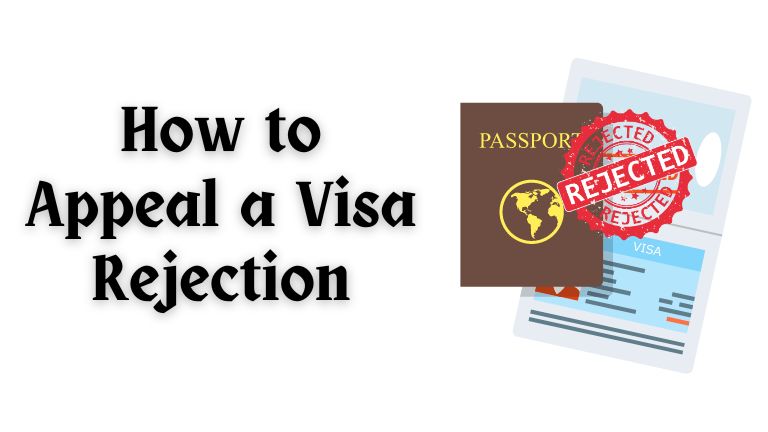A few frequent causes of visa denials are incorrect or incomplete application materials, insufficient evidence of funds or connections to your home nation, prior visa infractions, criminal histories, and security concerns. Rejecting a visa application can be discouraging, but don’t give up! If an applicant has good cause, several nations let them to appeal this judgment. Countries have particular deadlines for submitting visa appeal petitions. It’s critical to ascertain the precise timeline for your case and guarantee that your appeal reaches the consulate or embassy well in advance of the deadline. If the deadline is missed, your appeal can be automatically rejected. This comprehensive guide breaks down the appeals procedure into manageable phases for candidates and offers helpful advice on how to write an effective appeal letter.
Knowing Your Appeal Options
- Does the Nation Permit Appeals? It is important to start with the right step. Not all nations provide an appeals procedure for denied visas. To find out if appeals are permitted in your case, look at the rejection letter itself or get in touch with the embassy or consulate directly.
- Do You Have Solid Reasons to File an Appeal? It won’t work to appeal just because you’re disappointed. You must present a compelling argument for your position that the rejection was unjustified. Some common reasons why appeals are successful are as follows:
- Processing Errors: You have the right to file an appeal based on errors in your application or a mistake in the visa officer’s decision-making.
- Modified Circumstances: Since applying, has anything materially changed in your situation? Maybe you got a promotion at work or got trip plans confirmed, demonstrating closer ties to your native nation.
- Lack of Documentation: If you were unable to present the required paperwork at the time of submission, rectify the cause for rejection by providing the missing paperwork now.
- Misrepresentation: To address a miscommunication or inadvertent misrepresentation of facts, please offer any necessary clarifications and supporting documentation.
Writing a Compelling Appeal Letter
Though there is not a set format, a compelling appeal letter should have the following essential components:
- Your Information: To begin, provide your full name, passport number, phone number, email address, and birthdate.
- Application Details:Kindly mention the date of your first application for a visa and the purpose of your intended trip (holiday, business, etc.).
- Motive for Rejection: In your letter of denial, make sure to explicitly mention the explanation the embassy or consulate gave.
- Your Argument: This is the main point of your plea. Give a succinct and understandable explanation of your reasoning for thinking the rejection was incorrect. Provide specific examples and supporting documentation to back up your claims (if applicable).
- Supporting Documents: Attach any files that help bolster your argument. As examples, consider the following:
- Proof of reservations for travel (hotels, airfare), should your original application have been devoid of them.
- A letter from your company attesting to your employment and outlining your intended leave of absence, bearing witness to your close connections to India.
- Bank statements that demonstrate you have enough money to cover your travel, if that was the basis for the denial.
- Academic credentials or professional licenses pertinent to the place you plan to visit.
- A formal invitation from a host in the destination nation, particularly if the visit is private.
- Concluding Remarks: Please restate your request for a visa. Offer to supply the embassy/consulate any more data they would need in order to make a good judgment.
- Signing and Contact Details: For future correspondence, please provide your complete name, email address, and phone number in addition to signing and dating the letter.
Submit Your Appeal Letter
For detailed instructions, get in touch with the embassy of the nation you want to visit. Appeals are typically sent straight to the embassy.
Processing of Visa Appeal
Your appeal will be sent to the relevant department for assessment by the embassy once it has been received. A higher-ranking official will review your letter and any supporting documentation before determining whether to reverse the initial ruling.
Processing Time and Upcoming Actions
There are several turnaround times for appeals decisions. The embassy will let you know what they decided and what needs to be done next.
Conclusion
Even though receiving a visa refusal can be depressing, never give up on your trip aspirations! You can greatly improve your chances of success by being aware of the reasons behind the denial and supplying solid supporting documentation with your appeal. Recall that a neatly structured appeal that includes concise justifications and pertinent supporting paperwork shows that you are committed to adhering to visa requirements and leaving your home nation. For a chance to make your trip dreams come true, carefully consider the grounds for rejection, gather the required paperwork, and present your appeal with confidence.
Also Read-
